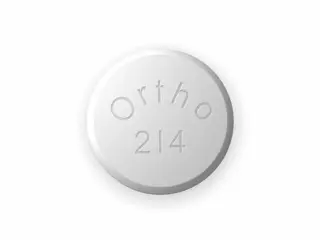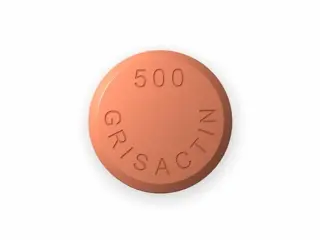Antifungal

Effective antifungal treatments to relieve and prevent fungal infections. Shop trusted medications for skin, nails, and systemic use. Fast action, reliable results.
Antifungal medications are essential for treating fungal infections. These infections can affect the skin, nails, mouth, and other parts of the body. Many antifungals come in pills form. They help stop fungal growth and clear the infection.
Diflucan (fluconazole) is a widely used antifungal. It treats yeast infections, including vaginal and oral thrush. Diflucan is often chosen due to its single-dose treatment for some infections. It works by blocking the fungus’s ability to make essential cell components. It is effective and comes with fewer side effects. However, it may interact with other drugs, so consult a doctor first.
Grifulvin (griseofulvin) is used mainly for skin and nail infections caused by fungi. It is taken orally for several weeks. Grifulvin works by stopping the fungus from growing. It is very effective against ringworm and athlete’s foot. Side effects might include headaches and stomach upset. Patients should take it with fatty foods for better absorption.
Grifulvin V
Grisactin is another oral antifungal pill containing griseofulvin. It serves the same purpose as Grifulvin and Grifulvin V. Grisactin helps to clear infections like tinea corporis and tinea capitis. It is best taken with meals to enhance absorption. Side effects are similar to other griseofulvin products. Overall, it is trusted for long-term treatment of skin fungal infections.
Lamisil (terbinafine) is a powerful antifungal. It is often prescribed for nail and skin fungal infections. Lamisil stops fungal cells from producing ergosterol, an essential component of their cell membranes. The treatment duration depends on the infection but often lasts several weeks. Lamisil is praised for its high cure rates in nail fungus. Some users may experience mild side effects like headaches or stomach pain. An advantage is its shorter treatment time compared to griseofulvin.
Lotrisone is a combination cream containing an antifungal and a steroid. Although it is mainly a topical treatment, pills are sometimes referred in its category for fungal infections requiring both antifungal and anti-inflammatory action. Lotrisone treats itchy fungal infections and reduces redness and swelling. When used correctly, it provides fast relief. Oral antifungal pills may be needed if infections are severe and widespread.
Nizoral (ketoconazole) comes in both topical and oral forms. The oral ketoconazole pill was once widely used but is now less favored due to side effects and liver toxicity risks. Nizoral tablets are prescribed only when other antifungals are unsuitable. The drug fights fungal infections by preventing the formation of fungal cell membranes. It works best on certain stubborn fungal infections. Patients must be monitored during use for any liver problems.
Sporanox (itraconazole) is a broad-spectrum antifungal. It treats various fungal infections including those of the nails, lungs, and skin. Sporanox blocks the same fungal cell membrane formation as other azole antifungals. It is effective even against difficult fungal strains. Treatment duration varies but usually continues for several weeks or months. Sporanox is preferred when other antifungals fail or cannot be used. Some common side effects are nausea, stomach discomfort, and headache. It is important to take it with food to improve absorption.
Choosing the right antifungal pill depends on many factors. These include the type and location of the infection, patient health, and possible drug interactions. Diflucan and Lamisil are often first-line choices for many fungal infections. Griseofulvin products like Grifulvin and Grisactin are mostly used for skin and nail infections requiring long-term treatment. Sporanox is a more potent option for serious infections. Nizoral oral tablets are now reserved for special cases. Lotrisone, while mainly topical, complements oral treatment by reducing symptoms.
In conclusion, antifungal pills offer effective treatment for fungal infections. Always follow medical advice for dosage and duration. Early treatment improves outcomes. Be aware of potential side effects and interactions with other medicines. Proper use leads to a full recovery and prevents recurrence.






